
The owners of the coal mines in the Georgian mining town of Tkibuli deny that any employees have job-related illnesses. The miners themselves tell a different story.
On 21 July 2020, Amiran Bochorishvili, a 65-year-old miner in Tkibuli, marched into the office of the director of the Mindeli Mine and cut open his wrist.
After 40 years working 300 metres underground, the mining company, Saknakhshiri, attempted to transfer Bochorishvili to surface duties, cutting his salary from around ₾900 ($270) per month to ₾300 ($91). They cited his recent diagnosis with chronic bronchitis. Amiran refused this offer and is now unemployed.
Today Amiran says he regrets what he did. ‘They made me do it. I was and am so frustrated by the new administration’s attitude. They took me to the Terjola hospital like I was a criminal. I was only missing the handcuffs’, Bochorishvili told OC Media.
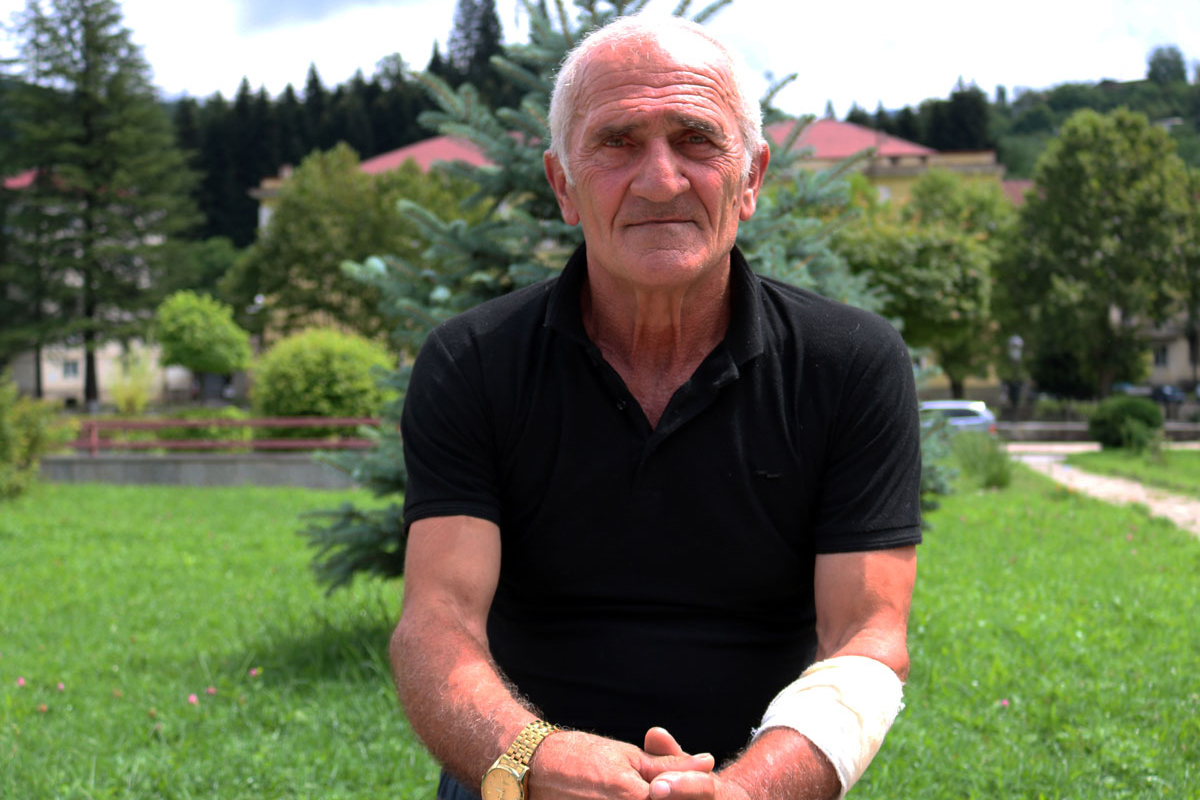
‘[My previous salary] was not enough to cover my expenses, how could I work for ₾300? All miners have debts in the store. I have an old mother in the village to whom I have to hire a caregiver. I have seven grandchildren and two children. I need ₾200 just for petrol to go from Tkibuli to Mestia to visit my grandchildren.’
Bochorishvili and others have also linked the move with his active participation in protests and strikes, a frequent occurrence in Tkibuli.
‘The Tkibuli mine administration, in general, doesn’t fire employees from their positions because of bronchitis’, one colleague who asked to remain anonymous told OC Media.
‘We all have bronchitis’, he said.
Prevention is key
Coal workers pneumoconiosis (CWP) — commonly known as black lung disease or dusty lung — is a condition in which a person’s lungs turn from pink to black due to the inhalation of coal dust over a long period of time.
CWP is a chronic disease that progresses gradually, with the main complaints being breathing difficulties, coughing, and chest tightness, often developing into chronic bronchitis.
‘The concentration of dust particles is dependent on one’s immune system’, says Mariam Vardanashvili, a pulmonologist at the LJ Clinic in Kutaisi.
‘The extent of the disease also depends on how much dust has been inhaled and for how long. If it happens for a long time, then the process progresses more.’
According to Vardanashvili there is no cure for CWP. But, she says the disease is far from inevitable in coal mines if measures are put in place to prevent exposure to coal dust.
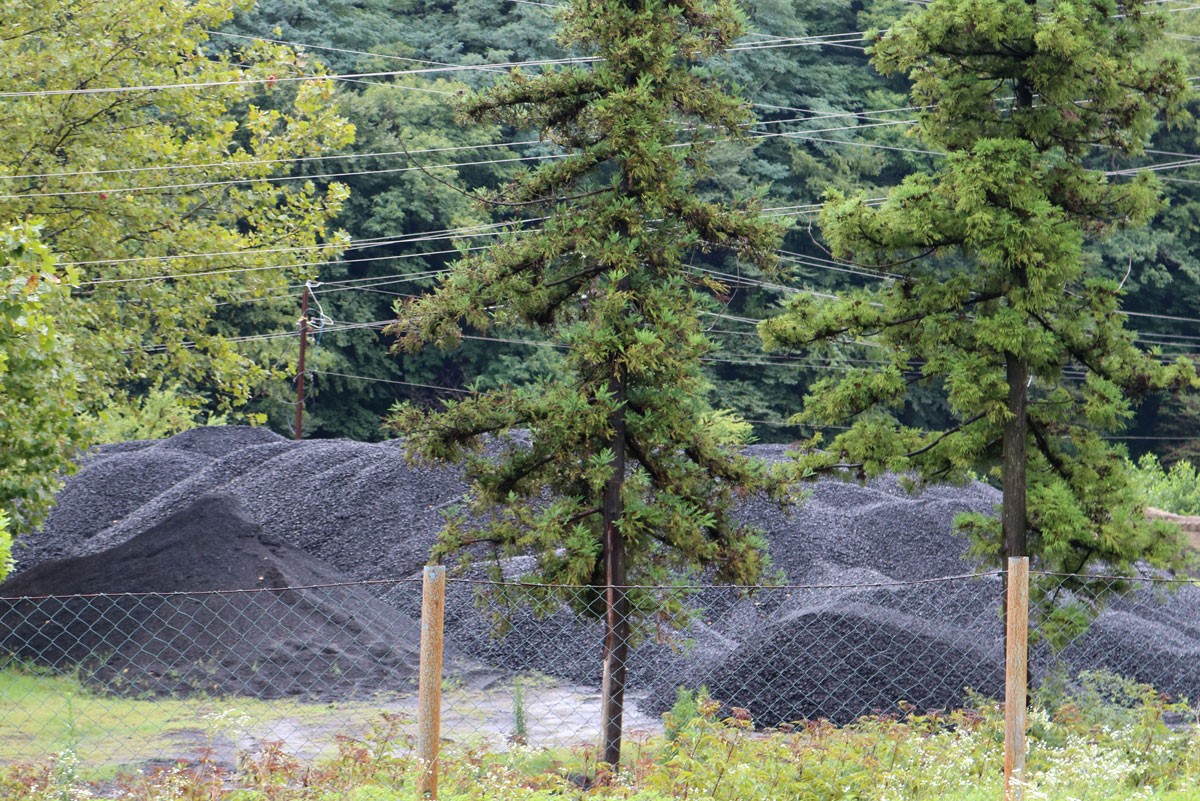
Glen Mpufane, Director of Mining at the IndustriALL Global Union says that mitigating or preventing the inhalation of coal dust can be done by integrating a number of measures into the work process, with the correct personal protective clothing, such as masks, acting as only the last line of defence.
According to Mpufane, the key to making mines safe for workers lies in adopting and following the International Labour Organisation’s 1995 Safety and Health in Mines Convention. Countries that have done so, he says, have improved the health and safety of their workers.
‘This has been statistically proven’, Mpufane tells OC Media.
‘A country like South Africa has moved from being the worst occupational health and safety performing country to being amongst the best alongside countries like Australia, Canada, the USA etc. as a result of ratification and implementation.’
‘Unfortunately, Georgia is one of those countries that has not ratified [the convention]’, Mpufane says.
There is no official data on the number of miners with professional diseases such as CWP in Georgia.
Nika Kakashvili, the chief labour safety specialist from the Georgian Trade Unions Confederation (GTUC), says that research is needed in order to determine where miners acquire illness — at work or elsewhere.
‘Research will be launched if injured employees start legal disputes against their employers’, Kakashvili told OC Media.
‘A catastrophic situation’
The mine administration insists that convention or no convention, they follow all the necessary safety measures.
‘Nowadays we do not have any employees with professional illnesses’, says Avtandil Bochorishvili, the deputy director for labour safety at the Tkibuli mines.
‘Medical examinations have been started and if someone with a professional disease is identified, appropriate measures — treatment and various benefits — will be taken for them.’
Bochorishvili told OC Media that people employed in the mine had suffered from CWP, but insisted that they do not currently have any employees with professional diseases.
He says that miners working on demolition are issued multiple reusable respirators and vibro gloves, and that water is sprayed on the rockface during drilling, to suppress the dust.
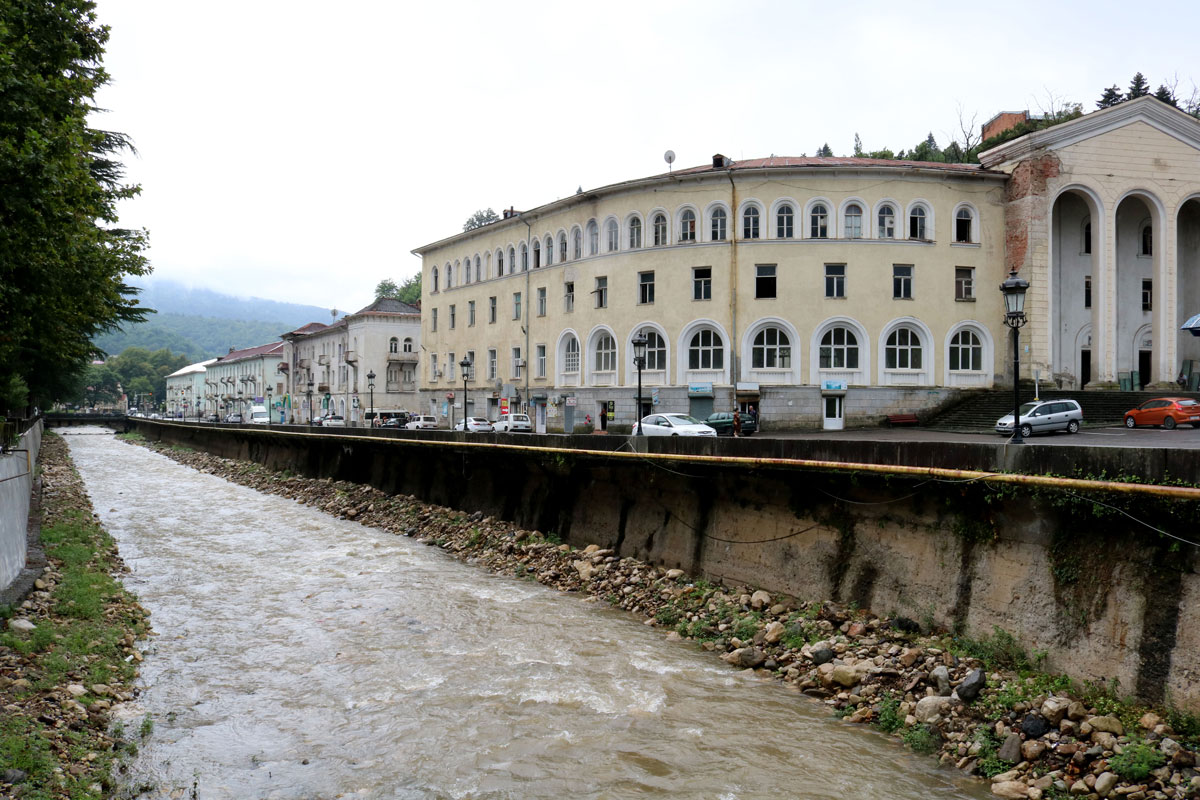
Employees tell a different story. ‘During drilling, there is a catastrophic situation’, says Ruslan Butskhrikidze, a 35-year-old miner in Tkibuli’s Dzidziguri shaft.
‘Because of the enormous amounts of dust, it’s impossible to make out a person within a one-metre radius. Even In these conditions, we are reprimanded if we use water during the working process, because, as they tell us, water damages the coal.’
‘The maximum [allowed] is for a miner to use enough water not to asphyxiate himself.’
Butskhrikidze told OC Media that he and his colleagues had never seen a pair of the vibro gloves that Bochorishvili insists the company provides. He said the respirators they were given were expired, and that there were not even enough of these, with one respirator often being shared between three or four miners.
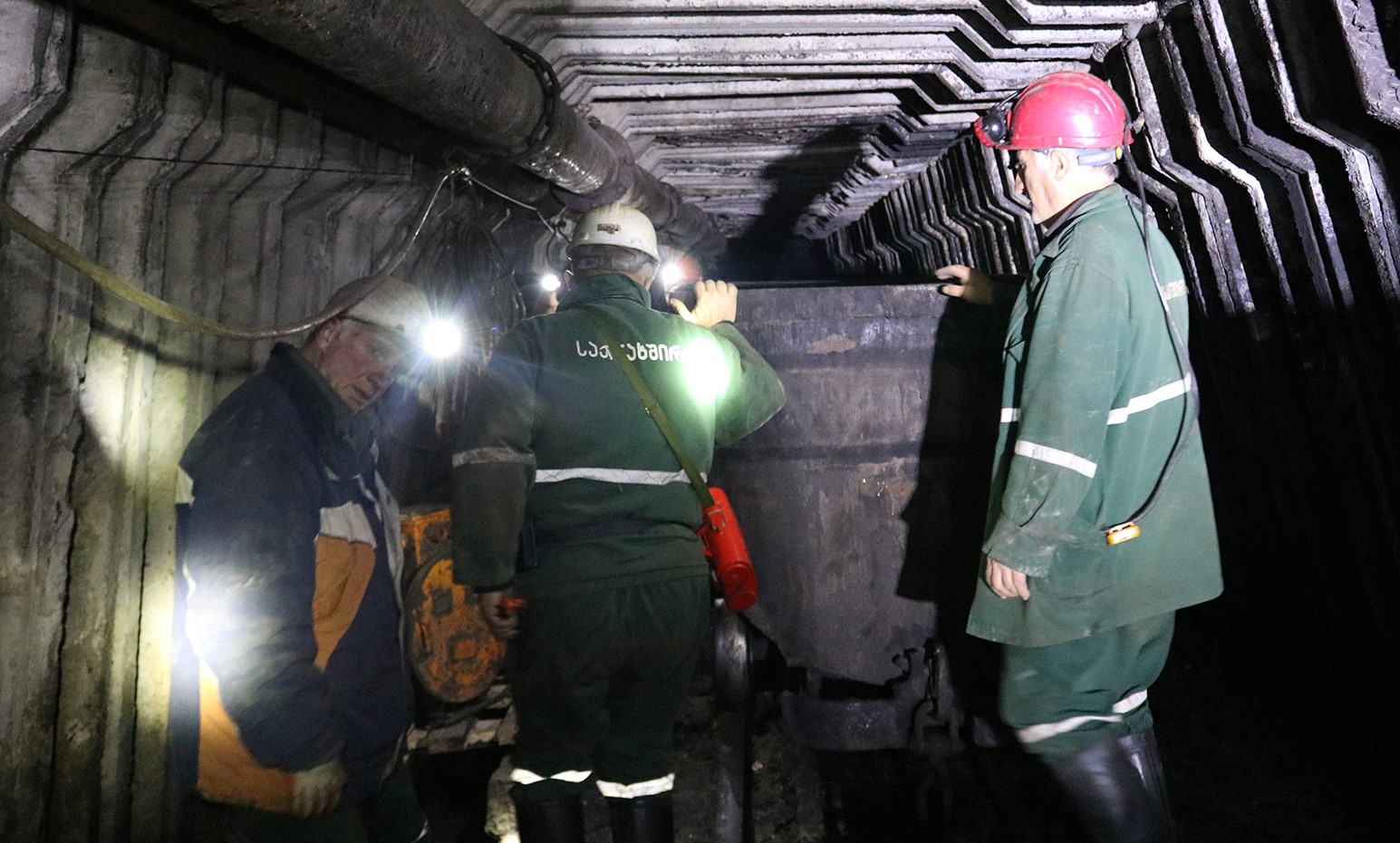
‘The problem is that there are no epidemiological studies which would show the reason employees have this or that disease’, says Giorgi Tsintsadze, a researcher at local rights group EMC.
He said the company was obligated to put in place a sound medical system to promptly identify professional diseases.
Tsintsadze told OC Media that for prevention to be effective, the company needs to invest in fixing infrastructure problems in the mines, including failing ventilation tunnels.
He also touched on how the pandemic has exacerbated the health risks, with miners more susceptible to the disease because of their weakened respiratory systems.
‘Social distancing is impossible during shifts because miners have to move close to each other using underground transport and the risk of spreading infectious diseases is high’, Tsintsadze says.
Beyond black lung
Miners from Tkibuli’s Mindeli and Dzidziguri shafts complain that industrial diseases can be the least of their problems, as the mine administration neglects even the basic safety of their employees. Accidents in the mines, sometimes fatal, are reported regularly.
‘What professional diseases are we talking about when a miner receives an industrial injury at the workplace?’, says miner Ruslan Butskhrikidze. ‘The company makes every effort to hide information related to the injury the worker got during the working process in the medical leave form.’
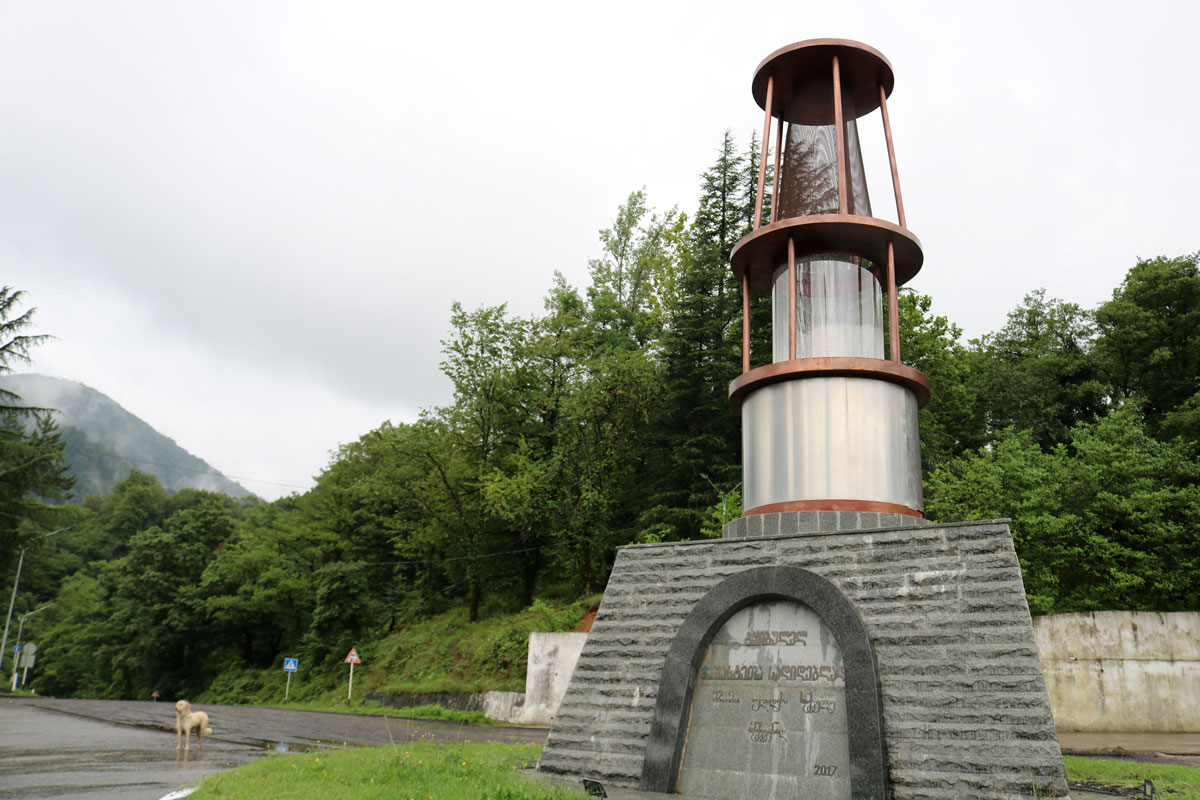
Malkhaz (not his real name), has been working in the mines for 10 years. Every day he descends to the tunnels 300 meters below the surface.
Two years ago, Malkhaz injured his spine while lifting a heavy object in the shaft, after which the hernia ruptured.
Despite being injured at the workplace, Malkhaz, who has a family to support, says he continued to work in the same position.
‘I had to take medical leave because I received injuries in the mine, but the company made me use my vacation days for the treatment’, he tells OC Media.
The Labour Conditions Inspection Department, which recently saw its mandate and powers increased, is responsible for ensuring that companies protect their workers. The department declined to comment on the issues faced by the miners in Tkibuli.






